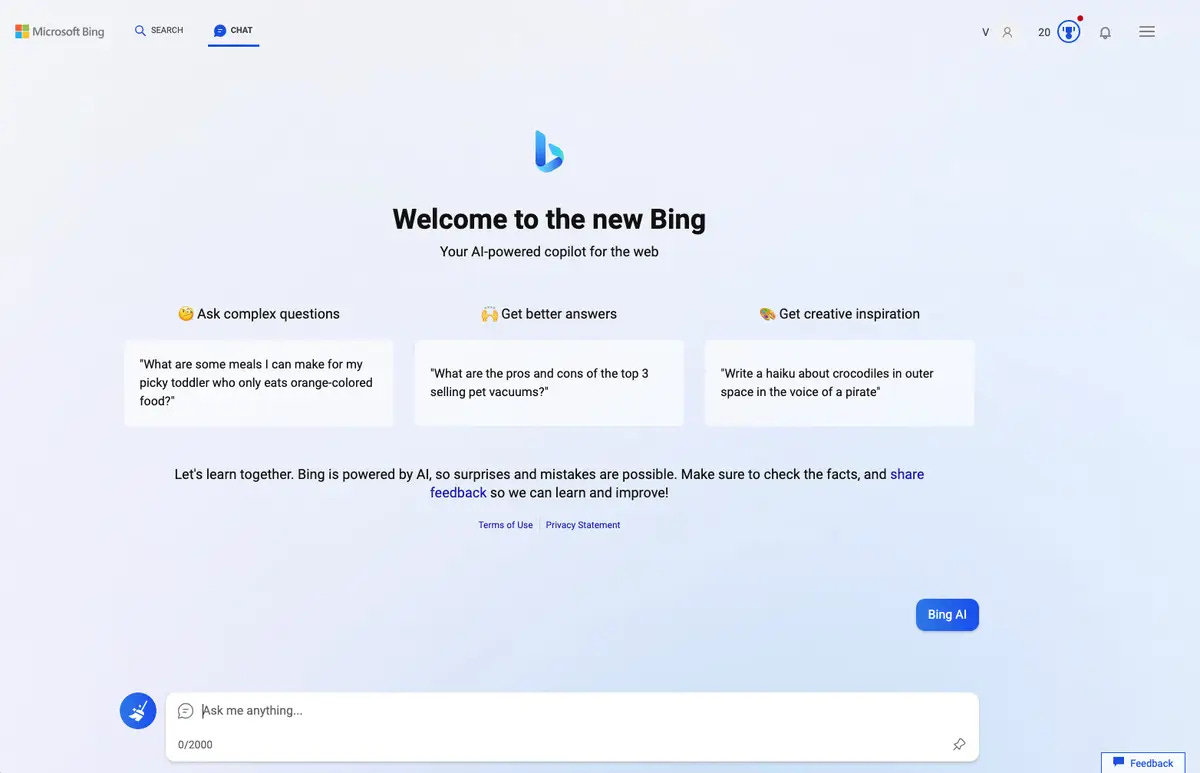Market Pulse: Google's Stock Crashed Post-Earnings, Why?
[3 minute read] The real reason why Google's stock violently sold off following an earnings report that exceeded analyst expectations.
The Big Issue
The Big Issue right now is the violent sell-off of Google’s (Alphabet) stock since it reported earnings on Tuesday afternoon. The stock is currently down over 10%!
The market’s harsh negative reaction to Google’s earnings report is puzzling given that the company beat analyst expectations for revenue and profit. It gets even more puzzling when Microsoft, which reported at the same time and also beat analyst expectations, saw its stock price jump by over 4%.
Why was Microsoft rewarded and Google punished? The answer is AI. The market only cares about AI right now, especially from the leading Big Tech companies.
Microsoft is making steady progress with integrating OpenAI’s ChatGPT and DALL-E into Bing (speaking of which, have you tried DALL-E 3 on Bing? It’s amazing), its Azure Cloud business also saw a boost in revenue from new AI business, beating analyst estimates on Cloud revenue ($24.26 billion actual vs $23.49 billion expected). Azure’s new Azure OpenAI service already has more than 18,000 organizations using it.
Google, on the other hand, didn’t have an AI story that was as compelling as Microsoft’s. There are especially high AI expectations for Google given its long history of AI investments but the market evidently thinks its moving at too glacial of a pace. While Microsoft beat analyst expectations for Cloud revenue, Google’s Cloud revenue missed expectations ($8.41 billion actual vs $8.6 billion expected).
In light of these earnings reports, the market is rebalancing from Google to Microsoft with growing fears that Bing and Azure will outpace Search and Google Cloud in AI capabilities.
The Details
How did Microsoft get so good in AI?
Microsoft established an early relationship with OpenAI with a $1 billion investment in 2019. The startup quickly became the de facto leading company in AI, being the first-to-market with a widely accessible and highly performant AI chatbot (ChatGPT) and text-to-image model (DALL-E). In fact, the current explosion of interest in AI can be directly attributed to the releases of both products.
Leveraging this early investment, Microsoft pulled OpenAI further into its ecosystem with a $10 billion investment in January. With adept foresight and a bit of luck, Microsoft managed to bring the world’s best AI company squarely under its sphere of influence.
Why is Google struggling with AI?
Google swiftly followed the launch of ChatGPT with the launch of their own AI chatbot called Bard. Bard appears to be generally on par with ChatGPT but Google has been slow to incorporate it into its products. Every “integration” so far is just an experiment.
This is the incumbent’s curse. Google’s main revenue source is Search, so it can’t be too aggressive with changes to how Search works. On the other hand, Bing is a small part of Microsoft’s business and Microsoft is more than willing to “move fast and break things”.
Why does the market only care about AI?
With wars raging and interest rates rising, the economy is in a tumultuous spot. Just a couple days ago, Jamie Dimon, the CEO of JPMorgan Chase, warned investors in the bank’s third quarter earnings report that “[t]his may be the most dangerous time the world has seen in decades”.
“This may be the most dangerous time the world has seen in decades”
With bleak hope for the near future, markets have channeled their focus on the long term and AI represents the frontier of revolutionary growth. It’s hard to argue against the idea that AI technology is at a stage where it’s very close to driving unparalleled innovation and efficiency across large swathes of the economy.
The pervasive idea is that AI will be the critical driver of future prosperity and that mandates investments today, despite a tumultuous economic environment. Nothing else matters.



